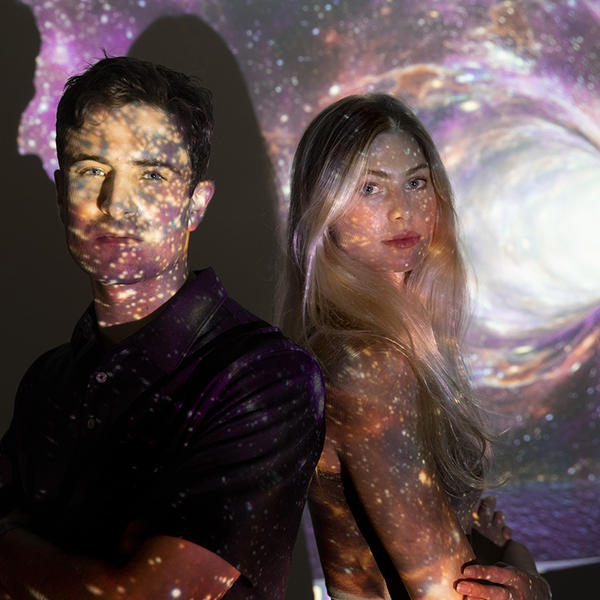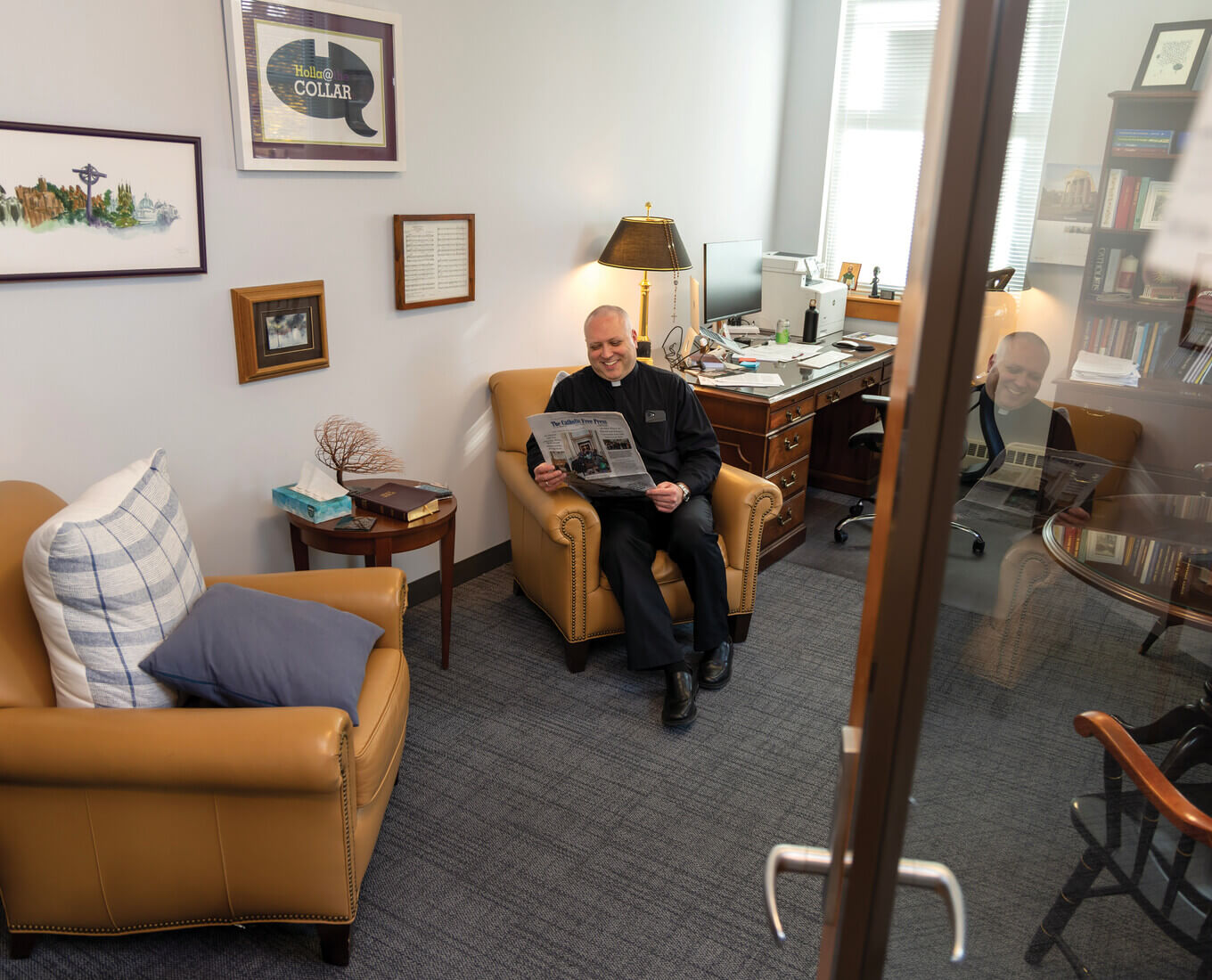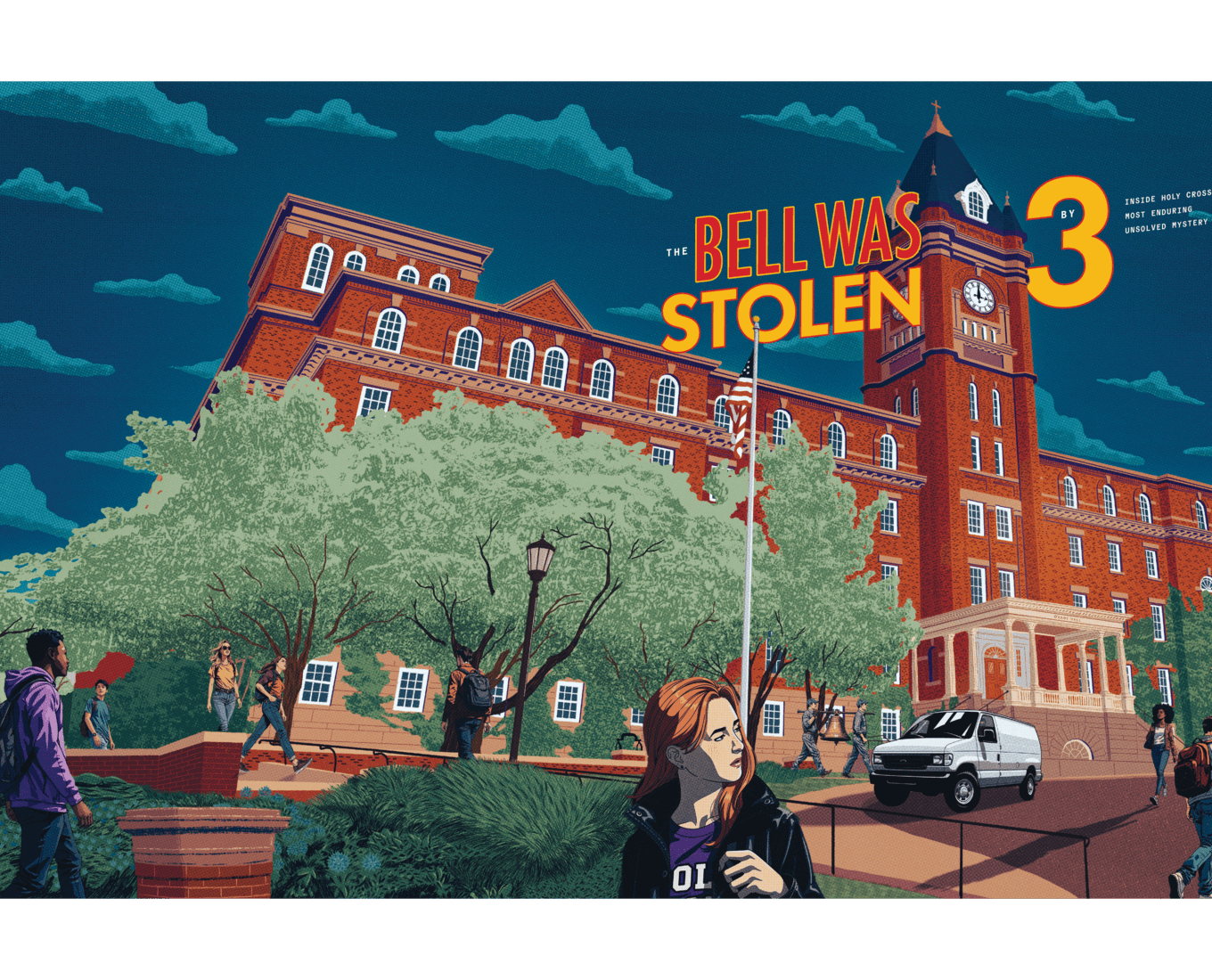To the untrained eye, the code, which Brendan Fay '23 and Karina Calhoun '24 spend hours typing into a computer, appears to be gibberish. But to Ben Kain, professor of physics and the pair's advisor for their work in the Charles S. Weiss Summer Research Program, the data depicts a theoretical wormhole.
While wormholes are straight out of science fiction and may exist in the theoretical universe, the skills Fay and Calhoun are gaining not only add to their passion of computer science but also provide valuable real-world experience.
Fay is a math major who will be studying computer engineering at Columbia University next year. Calhoun is a physics major. Neither had a strong passion for computer science until they arrived at Holy Cross.
What attracted you to this summer research project of simulating wormholes?
Fay: I thought it would really improve my programming skills in an area that I hadn't really touched on a lot in my computer science classes.
Calhoun: In some of my classes that Professor Kain taught last year, we were exposed to using the Python programming language for physics purposes and calculating math and physics on the computer. I also took a computer science course and I realized: I really like this. I wanted to do something that combines both. I really enjoy seeing how code can work for physics and vice versa.
What are some of the benefits of learning how to program?
Fay: A lot of the equations that we're working with are partial differential equations that you can't just solve by doing algebra. So, on a piece of paper, it's not possible. The computer makes it much faster.
Was there anything specifically that drew you to this research project?
Calhoun: Until hearing that we were researching wormholes, I was accepting that as science fiction. I was, like, wormholes? OK, sure. And now we're working with equations. It's very interesting to see just how much there is to physics.
As a physics major, what's it like for you to calculate the limits of physics and discover its depth?
Calhoun: It's weird because there's not really any kind of physical entity that we're seeing or interpreting. It's working with the numbers. This is also physics, but it's a lot more theoretical than I've ever worked with.
What is it like to combine the theoretical side of physics like wormholes with your passion for the conventional side?
Fay: It's a little strange. On one hand, you're looking at a bracket or a number variable on your computer screen. But then you look at the plot of your equation a little bit later and you see this is the theorized behavior of some kind of very abstract impossibility. It's a little surreal.
What interests you about computer science?
Fay: Computers are interesting; it's a little box and you press keys and it's unbelievable it does what you tell it to do. I took a computer architecture class last semester and it was so interesting to see how you can construct little pieces of metal or silicon and build this magical instrument.
Brendan, you didn’t have this interest in computers before arriving at Holy Cross, what changed?
I took data structures with Professor Kevin Walsh last semester and that was a really cool class. Data structure is basically how you organize your data in a computer program. It gives a number of different ways you can do it to best fit what you're trying to do. There are little puzzles within the class. I thought it was really fun, so I took a few more classes.
Karina, what attracted you to computer science?
I really like the puzzle aspect of it. Every time we get new equations from Professor Kain that we put in the computer, it's another puzzle that I get to do and I get excited about that.
Karina, did you come to Holy Cross thinking that computer science was what you wanted to study?
I wasn't entirely sure. I wanted to do something with math or physics. I ended up declaring as a physics major. I'm not sure if I want to add any type of computer science to see where this takes me. I have this problem where every time I take a class like at Holy Cross, I want to take more of them. I took computer science and I want to take more. I took chemistry and I was, like, 'I want take more.' You can't do it all, so I'm just trying to figure out the balance between a major and other courses.
What do you enjoy most about coding, which can seem tedious?
Calhoun: When the code works and the puzzle is solved. Time goes by really fast just because we're very focused at what we’re doing. We come in and then 5 minutes later, it's lunchtime.
Simulating Wormholes: Holy Cross Students Pursue Computer Science Passion Through Theoretical Physics

A pair of students discovered a deep interest in computer engineering after arriving on The Hill.
Read Time
4 Minutes

